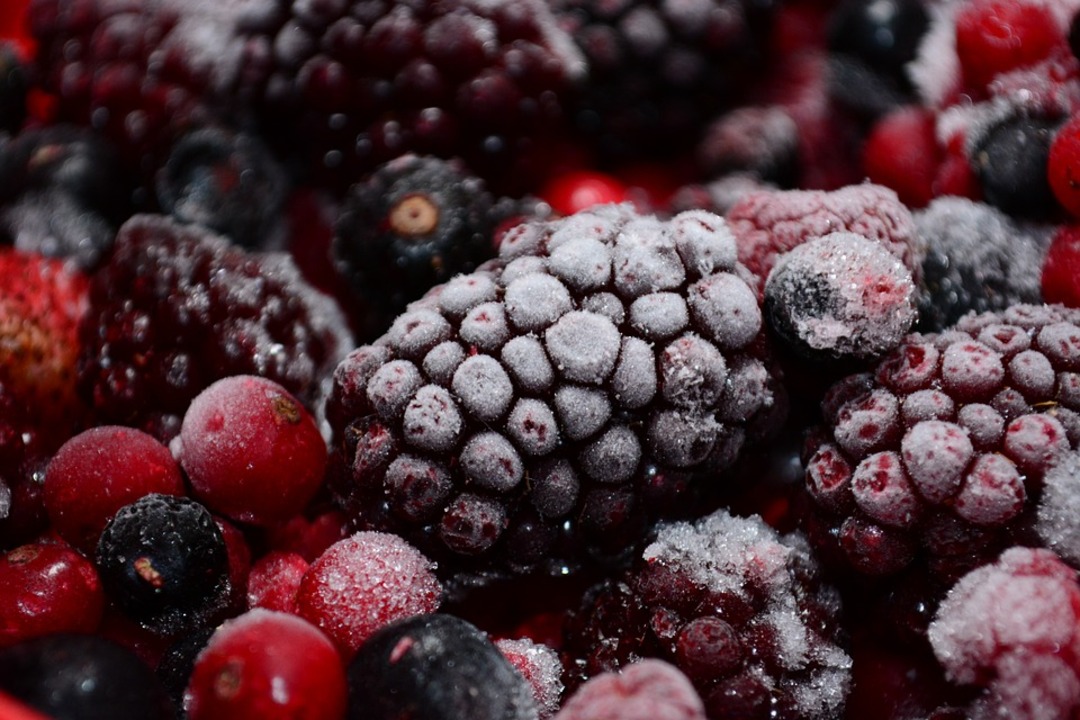-
New Zealand warns about Hepatitis A risk from imported frozen berries

New Zealand Food Safety is advising consumers, especially those with chronic liver damage, the elderly and pregnant people to consider extra precautions for eating imported frozen berries to minimize the risk of contracting the Hepatitis A virus, the Xinhua reported.
Hepatitis A is relatively rare in New Zealand, but in 2015 imported frozen berries were linked to an outbreak of the disease, deputy director-general Vincent Arbuckle of the government body responsible for food safety said in a statement on Wednesday (Sep 14).
Virus genotyping has recently established the link between three cases of Hepatitis A in the country to consumption of imported frozen berries.
Arbuckle said: "While there is not sufficient information on a specific brand to initiate a targeted product recall, the evidence from the cases and from international experience indicates a risk of exposure to Hepatitis A from consuming imported frozen berries.”

He said, consumers have been reminded to take extra precautions as New Zealand is moving towards the summer months when more frozen berries will be consumed.
The New Zealand Food Safety suggests briefly boiling frozen berries before eating them, or ensuring cooking temperatures exceed 85 degrees Celsius for one minute.
FDA links hepatitis A outbreak in US and Canada to strawberries
"Imported berries are subject to a sampling and testing regime before being released for sale," Arbuckle said, adding any food safety risk cannot be eliminated completely from food for sale.
He said, the department is working with frozen berry suppliers to ensure they are aware of potential risks and are actively managing the issue, and actions including product recalls will be taken if any evidence of a wider risk has been identified.
Source: xinhua
You May Also Like
Popular Posts
Caricature
BENEFIT Sponsors BuildHer...
- April 23, 2025
BENEFIT, the Kingdom’s innovator and leading company in Fintech and electronic financial transactions service, has sponsored the BuildHer CityHack 2025 Hackathon, a two-day event spearheaded by the College of Engineering and Technology at the Royal University for Women (RUW).
Aimed at secondary school students, the event brought together a distinguished group of academic professionals and technology experts to mentor and inspire young participants.
More than 100 high school students from across the Kingdom of Bahrain took part in the hackathon, which featured an intensive programme of training workshops and hands-on sessions. These activities were tailored to enhance participants’ critical thinking, collaborative problem-solving, and team-building capabilities, while also encouraging the development of practical and sustainable solutions to contemporary challenges using modern technological tools.
BENEFIT’s Chief Executive Mr. Abdulwahed AlJanahi, commented: “Our support for this educational hackathon reflects our long-term strategic vision to nurture the talents of emerging national youth and empower the next generation of accomplished female leaders in technology. By fostering creativity and innovation, we aim to contribute meaningfully to Bahrain’s comprehensive development goals and align with the aspirations outlined in the Kingdom’s Vision 2030—an ambition in which BENEFIT plays a central role.”
Professor Riyadh Yousif Hamzah, President of the Royal University for Women, commented: “This initiative reflects our commitment to advancing women in STEM fields. We're cultivating a generation of creative, solution-driven female leaders who will drive national development. Our partnership with BENEFIT exemplifies the powerful synergy between academia and private sector in supporting educational innovation.”
Hanan Abdulla Hasan, Senior Manager, PR & Communication at BENEFIT, said: “We are honoured to collaborate with RUW in supporting this remarkable technology-focused event. It highlights our commitment to social responsibility, and our ongoing efforts to enhance the digital and innovation capabilities of young Bahraini women and foster their ability to harness technological tools in the service of a smarter, more sustainable future.”
For his part, Dr. Humam ElAgha, Acting Dean of the College of Engineering and Technology at the University, said: “BuildHer CityHack 2025 embodies our hands-on approach to education. By tackling real-world problems through creative thinking and sustainable solutions, we're preparing women to thrive in the knowledge economy – a cornerstone of the University's vision.”
opinion
Report
ads
Newsletter
Subscribe to our mailing list to get the new updates!






















